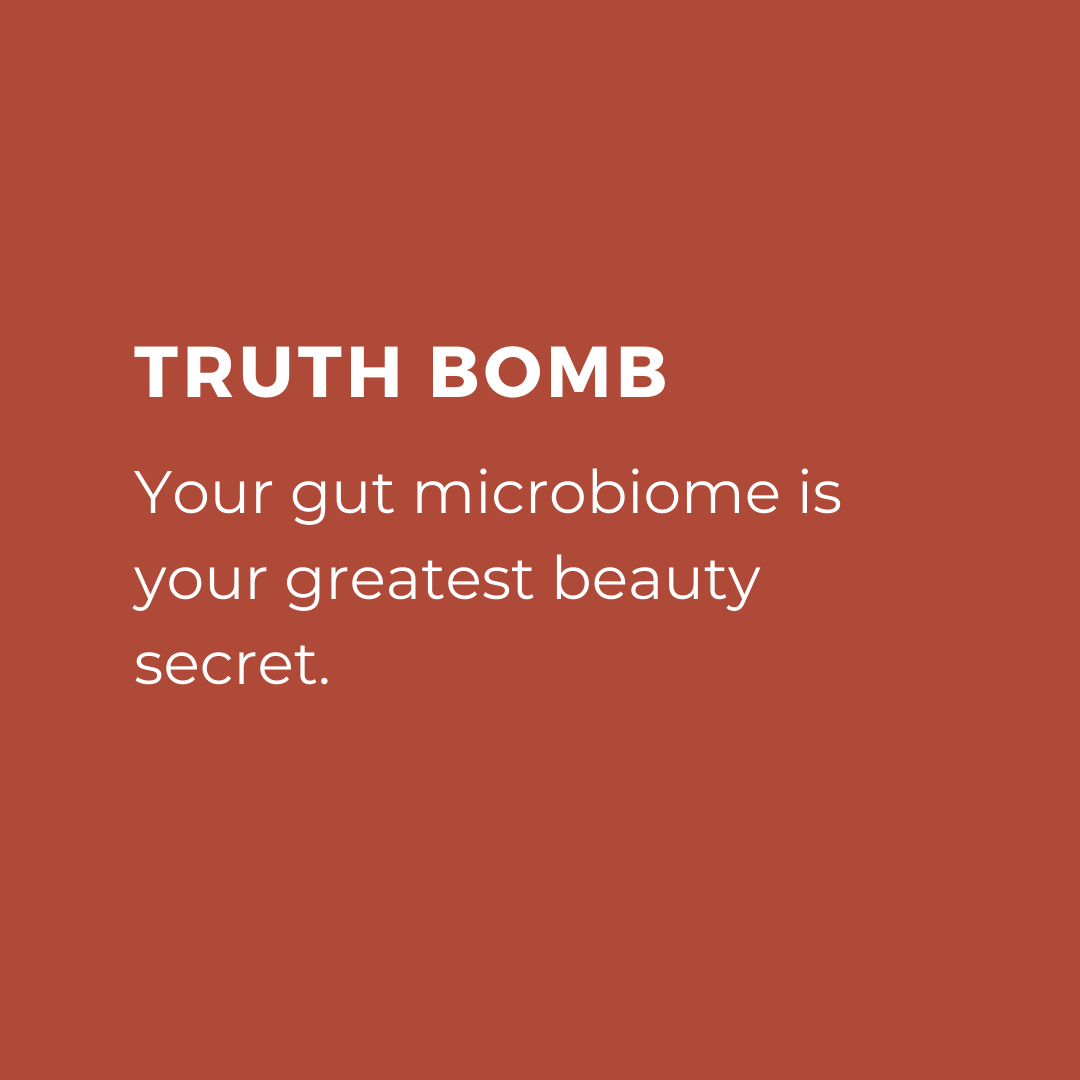Did you know that you gut microbes are your best beauticians?
In the same way your gut is in constant conversation with your brain, your gut has an innate dialogue with your skin via the gut-skin axis. This pathway allows both to interact with each other via the microbiome. Most skin conditions have similar symptoms to gut conditions. The two are often closely linked and influenced by each other. The number one root cause of skin conditions is definitely leaky gut, caused by gut dysbiosis (an imbalance of your gut ecosystem).
So if your gut is out of balance, irritated or inflamed, your skin is the first place to show it.
To have flourishing skin, it is vital to first (1) Seal, (2) Heal and (3) Seed your gut.
Let’s have a look at these 3 key concepts.
SEAL & HEAL
Here it is important to stop irritating your gut with harmful things/foods like chlorinated water, antibiotics, sugar, wheat and polyunsaturated fats. Polyunsaturated oils are a huge root cause of hyper pigmentation (way more than the sun). Most super market food is made from those inferior fats.
Also, stop using antibacterial soap as it contributes to developing a bacterial breeding ground for super bugs. You want to keep the hydro-lipid barrier and ensure the integrity of the skin is supported. That can be done by only applying natural bar soaps for pits and bits.
Stress less.
Take back the control over the controllable.
What can you change today?
- Eat high quality nourishing foods
- Go to bed earlier
- Breath deeper
- Cut or reduce coffee
- Cut or reduce alcohol
- Apply jojoba oil on skin
- Get filtered water
SEED
So it is really important to seed your skin by multiplying your gut microbes by multiplying your microbial bank account. You can do this by eating lots of prebiotics, feeding the probiotics (e.g. collard greens, dandelion, chicory root, asparagus, garlic, leek, onions). This will amplify the probiotics (e.g. fermented foods such as kefir, yoghurt, sauerkraut, kimchi, miso) you are taking to build your microbial diversity.
This will increase your skins immunity, strengthen your skin barrier, help lipid production, balance sebaceous glands (helping to lubricate skin), assist with collagen synthesis and help with eczema, rosacea, dermatitis, psoriasis.
More and more research is supporting the use of probiotics in the treatment for skin conditions, and these include the species of Lactobacillus, Bifidobacterium and Streptococcus.

